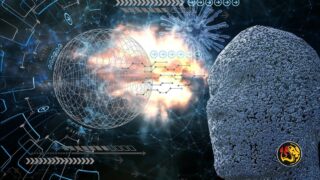
By Stefan J. Bos, Chief International Correspondent Worthy News
DENVER/BANGALORE (Worthy News) – A computer program that could provide digital identification for the entire world population is expected to be used by 1 billion people within 18 months, Worthy News learned.
The Modular Open Source Identity Platform (MOSIP) is helping nations to meet a United Nations goal to “provide legal identity for all, including birth registration by 2030”, developers said.
The program can establish people’s identities for documents such as biometric passports or voter registration. Border control, law enforcement, and social services are also using MOSIP software, officials said.
MOSIP was created in 2018 by the ‘International Institute for Information Technology Bangalore’ in India, home to many of the world’s computer experts.
It is backed by the North American Aerospace Defense Command (NORAD). Other wealthy sponsors include the U.S.-based Bill and Melinda Gates Foundation, which pledged $10 million to support MOSIP “in its mission to create a universal digital identification system.”
Among other multi-million dollar spenders on MOSIP are Omidyar Networks, a “philanthropic investment firm” founded by Iranian-American billionaire Pierre Omidyar and his wife Pam, and Indian multinational Tata Trust, according to records seen by Worthy News.
1.1 BILLION WITHOUT ID
“MOSIP aims to provide governments with the tools for meaningful digital transformation, established on a bedrock of good principles and human-centric design,” said the Indian-based MOSIP Project on its website.
Nearly 1.1 billion people worldwide still lacked proof of identity, according to U.N. estimates, something MOSIP says it wants to change.
The software is already heavily used in Africa and Asia, according to sources familiar with the situation.
And, MOSIP recently partnered with Denver-based U.S. technology company Rank One Computing (ROC), Worthy News learned.
“The partnership will allow ROC to offer its industry-leading biometric matching technology to MOSIP’s adopting nations,” including ROC’s “face and fingerprint matching technologies,” the company confirmed.
Sharad Sharma, cofounder of the influential India-based technology think tank SPIRT Foundation, noted that about 100 million people in 11 countries have registered on MOSIP-based systems.
MANY USE MOSIP SOON
He said in published remarks that its “adoption will rise to a billion” within 18 months. The United Nations announced separately that it wants to see at least 50 nations implementing fully digital identification in 5 years by 2028.
That’s music to the ears of Dumitru Alaiba, deputy prime minister and minister of economic development and digitalization of Moldova, the tiny nation sandwiched between Ukraine and Romania.
Moldova has “half of its digital services already provided in digital mode, and it’s going up 75 percent by next year,” Alaiba said.
“We want to change the relationship between the government and the citizens. We are also working on a government super app, which shall be released in the coming few months,” he added.
Mistrust in the state is considerable as impoverished Moldova still reels from the $1 billion, around 12 percent of its gross domestic product, that “disappeared” from three commercial banks.
Yet critics wonder whether digital identification and related services promoted by the United Nations and the World Economic Forum will lead to more intrusive government interference like China’s Social Credit System.
Those fears appear second thoughts among the most vocal digital world supporters, including Alaiba, the minister. “We are not coming back to paperwork.”
Copyright 1999-2026 Worthy News. This article was originally published on Worthy News and was reproduced with permission.
Latest News from Worthy News
The Trump administration has finalized a sweeping reciprocal trade agreement with Taiwan, confirming a 15 percent U.S. tariff rate on Taiwanese imports while securing broad new market access and purchase commitments for American goods.
Democrats are applauding White House border czar Tom Homan’s Thursday announcement that immigration enforcement operation in Minnesota will end next week.
Democrats in the U.S. Senate tanked the Homeland Security full-year funding bill in a last-ditch vote Thursday, all but guaranteeing a partial government shutdown starting Saturday.
Mourners in a remote Canadian town grappled Thursday with the aftermath of one of the country’s deadliest school shootings in decades, as families, survivors and leaders reacted to the tragedy that left eight victims — most of them children — dead, along with the 18-year-old suspect.
A gunman who opened fire at a school in southern Thailand’s Hat Yai city on Wednesday wounded a teacher and a student before being detained, authorities said, in a rare attack that sent students and staff into panic.
The Republican-led House of Representatives has passed the Safeguard American Voter Eligibility (SAVE) America Act, advancing legislation that would require proof of citizenship to register to vote and photo identification at the polls. The bill now heads to the Senate, where its future remains uncertain amid strong Democratic opposition.
Israel’s Ministry of Defense announced on Wednesday that its advanced David’s Sling air and missile defense system has completed a series of complex modernized tests, a development officials say bolsters the country’s defensive posture as tensions with Iran escalate and the United States prepares military options that could include direct strikes.







